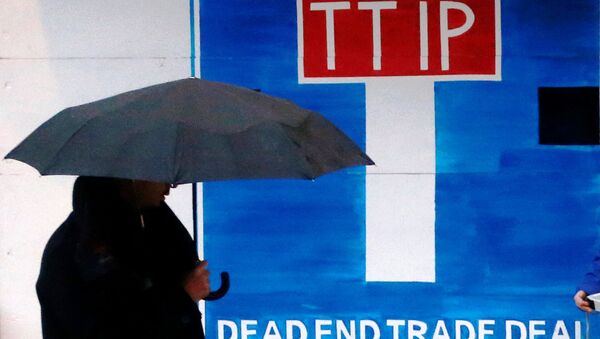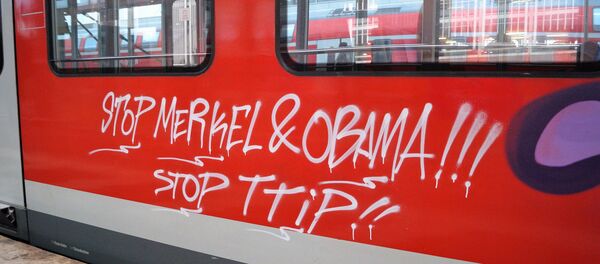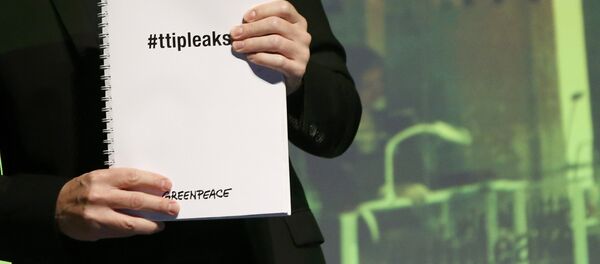On Sunday, Greenpeace said it had obtained 248 pages of classified TTIP documents representing around two-thirds of the draft EU-US free trade deal. The documents detail the leading role of corporate interests in the agreement, as well as policies threatening the environment and public health, according to Greenpeace.
"A deadlock in US-EU trade talks is very possible but only if environmental campaigners and the public keep up the pressure," Bill Waren, a senior analyst at Friends of the Earth, said.
The leaked documents exposed major contention between the two sides on the issues of environment protection and public safety standards. It triggered a wave of criticism from advocacy groups and environmental activists.
"I think it very possible that France and several other national governments in the EU will balk at the deal if public pressure in unrelenting," Waren continued.
Following the Greenpeace leak, EU Trade Commissioner Cecilia Malmstrom rushed to calm down the public and said that the European Union would not reduce its consumer protection as a result of the TTIP agreement.
Meanwhile, US Trade Representative Michael Froman said that interpretations of the leak had been misleading and incorrect. The White House stated that the leak would not impede the agreement's signing by the end of the year.
"US proposals for TTIP include an obligation to establish institutions and procedures to quash environmental initiatives before they can even be promulgated. Regulatory review chapters in the TTIP would encourage business-friendly, cost-benefit analysis that would hamstring environmental or other public interest regulations," Waren explained.
The TTIP deal has drawn severe criticism for the lack of transparency in the negotiations as well as for the tremendous power it would potentially give to international corporations. The TTIP has also been slammed for bypassing the framework of the World Trade Organization and excluding the BRICS (Brazil, Russia, India, China and South Africa) countries.





